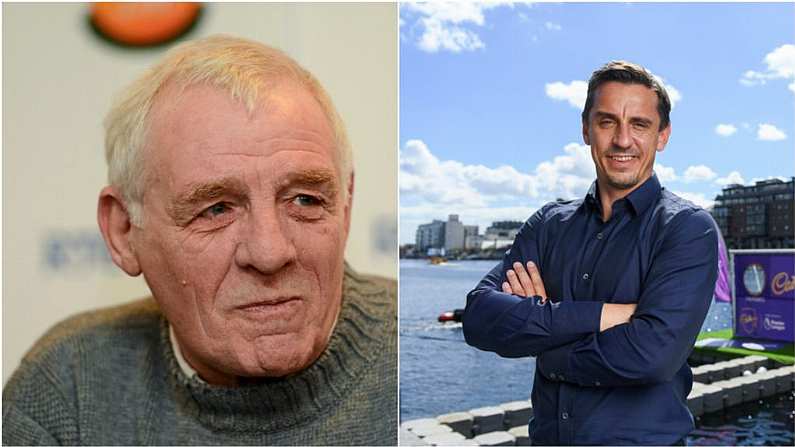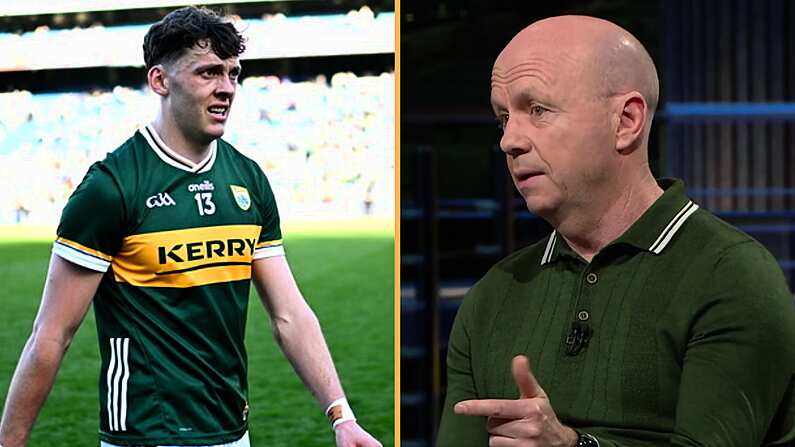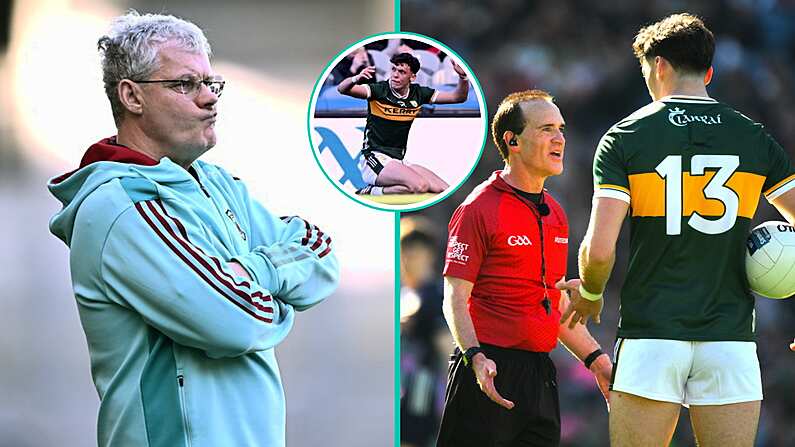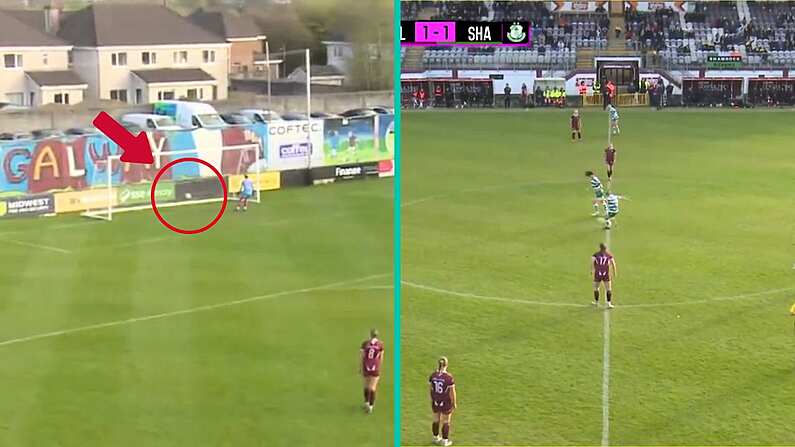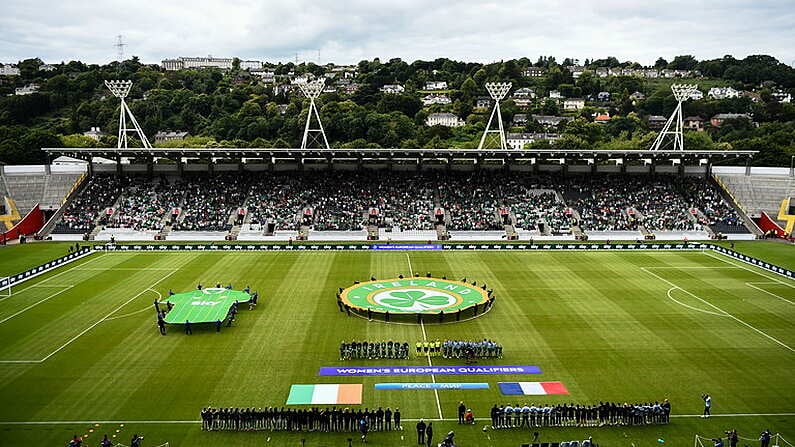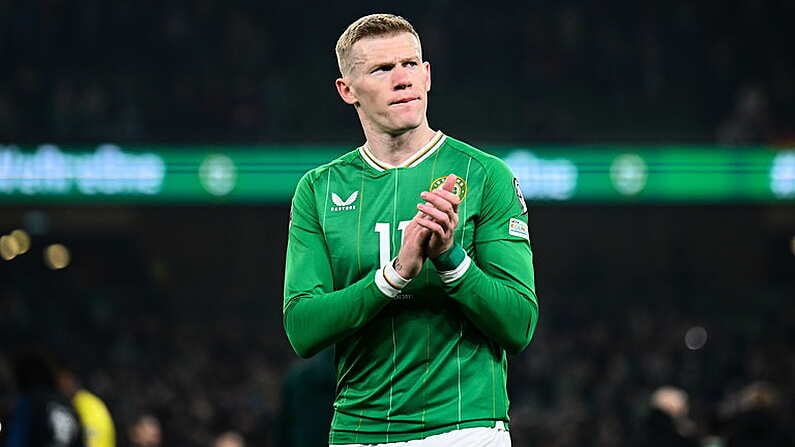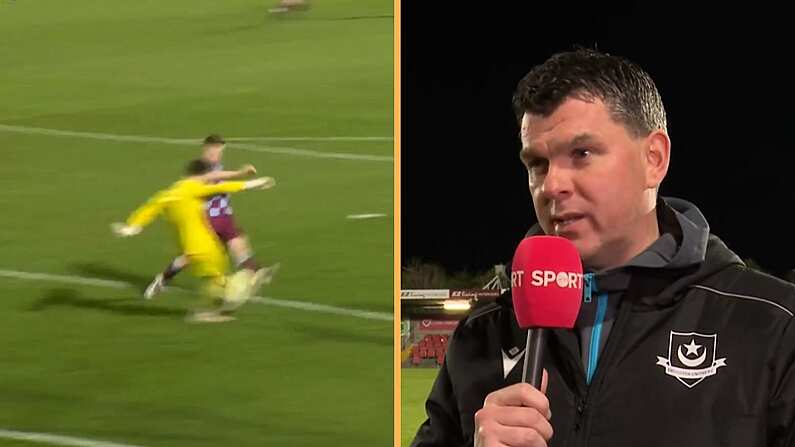Even by his own shrieking standards, Eamon Dunphy's RTE valedictory in The Star about social media struck a notably melodramatic tone, as he bewailed Twitter's potency like it was a nuclear football.
Social media would have done for me. Executives now take notice of social media and what is being said. That is one of the evils of modernity. It puts down anyone who has a contrarian view; anyone who has their own mind is immediately a target.
Unfortunately, many of the people who run the media business now pay attention to it.
It is a vicious, ignorant, dark world.
It's a vicious tool in the wrong hands.
As with most things Dunphy says, there remains the germ of a point after it is refracted through his self-interest. Dunphy made his name as a football pundit - particularly in later years - as being the man of wild and wanton opinion. These opinions had value when they remained scarce, but social media has seen them bubble, fizz, overflow and drench the national consciousness to the point of saturation. Dunphy lost his monopoly.
But aside from that, he makes a point worth interrogating. Are Twitter and other social media platforms really stymieing debate and forthright opinion in sports broadcasting, as Dunphy intimates as he bemoans the shutting down of contrarian opinion?
We'll talk specifically about the ultimately unimportant realm of sport in a moment, but it's worth looking generally on how, in Dunphy's words, social media "puts down anyone who has a contrarian view".
Originality is hopelessly buried on these platforms, with most discourse online merely a reaction against a reaction to something else. That Twitter and Facebook's metrics reward the strongest, pithiest, and least nuanced of these takes has fostered a kind of call-out culture online, ignorant of empathy.
The motivations for all of this extends beyond the instant dopamine hit of seeing one's notifications light up, and the tangle of other forces driving it all have been best summed up by the late activist and writer Mark Fisher as being rooted in a "priest’s desire to excommunicate and condemn, an academic-pedant’s desire to be the first to be seen to spot a mistake, and a hipster’s desire to be one of the in-crowd".
Hence why there is so much irony and anger online: it's what gets the best results. When attention is the currency, the richest will be those who shout the loudest.
Some of the anger and outrage is obviously genuine, but it is confected at least as often.
So, to return to Dunphy's thesis that its influence is stifling debate and opinion on sport. In the case of his RTE, we were unable to confirm how closely RTE Sport track social media comment and whether any editorial decisions have been triggered by social media.
An RTE source, however, did confirm that the number of official complaints made to the broadcaster has noticeably dropped since the advent of social media, and social media is seen as an alternative release valve when viewers feel the need to get something off their chest. This hints that the department being subject to public criticism is different today only in form.
It may differ from broadcaster to broadcaster, but anxiety over social media does not seem to explicitly stymie debate on Sky Sports: Chris Kamara and Gary Neville both confirmed to Balls that they have never been told not to say something based on the stir it may cause online.
Neville recalled two instances over his punditry career in which he learned that he had gone too far: one was the judgement of a producer; the other a realisation by himself.
During an Arsenal v Chelsea game, I called a fan an ‘idiot’ for holding up a banner reading ‘Wenger Out’ ten minutes before the end of the game. My problem with that wasn’t the fact he had the opinion that Arsene Wenger should leave.
It’s the fact that this is a guy who went and bought a big piece of cardboard the day before - he’s gone to B&Q - and he’s got a massive load of paint, and he has painted this before a game in anticipation that his team is going to lose.
He has! I’m thinking, 'That’s not football'. Fans can say what they want, I genuinely believe that. But that doesn’t mean I shouldn’t call him an idiot.
The producer rang me up and said he didn’t think that was appropriate. You have to take that on board. He didn’t say ‘don’t do it again’.
The second instance came this summer, as Neville was doing World Cup punditry with ITV.
During the summer, the Uruguayan boy who started crying six or seven minutes before the game, I think I called it “embarrassing”.
Because I was on free-to-air TV, it was a different audience and a lot of them thought it was quite sweet that he was crying. From a football point of view, looking back on it, my feeling is the same. The player should cry at the end of the game and focus until the very last second of the game to try and win his team the game.
The idea being that if you’re crying during a football match, you’re not focusing on the next possession, next tackle, next header as you are actually thinking, ‘I’ve lost’.
It was only 2-0. There were six or seven minutes left. My view, from a punditry point of view, rather than saying it was embarrassing, I probably would be to say, ‘Look, stop crying and start concentrating on this game. Go and help your team score a goal. Then at the end of the game, then you can cry’. That’s a more compassionate way of dealing with it, rather than coming out with ‘that’s embarrassing’, which feels like a bit of a hammer over the head.
I’m never told what to do. I self-police it.
Neville is characteristically engaging on the subject - "the thing you get criticised most for on social media is commentary. And the thing about your commentary you get criticised for most is your pick for Man of the Match. And I don’t even care! To be fair, I never thought about it once during my career. ‘How’ve you picked him?’, ‘You’re a disgrace’, ‘You’re biased’, ‘Have you watched the game I’ve just watched?'" - but he does pay attention to online chatter after saying something he slightly regrets.
Sometimes words come out of your mouth and you say, ‘No, come back! I didn’t mean that one’. But it’s gone. Then you approach your phone after the game wondering ‘have people noticed’ and, invariably... they have.
Neville saying that he self-polices and that he is aware of online backlash while never explicitly linking them is interesting, and the degree to which the latter informs the former is probably the most accurate barometer of the extent to which social media anger impinges on sports broadcasting on channels which don't explicitly tone down opinion.
Even in cases where editors and executives ignore social media, it maintains an influence that is notably diffuse, personal and silent. Neville seems of a sufficiently strong mind to slough off many -if not all - of its lingering effects, but what of other pundits, commentators, writers and presenters?
Can they give their full, honest opinion knowing they will immediately get an impression of how it is received (however falsely hyperbolic that impression may be) and then feel strong enough to give it again? Or the next time their opinion is courted, do they choose to quietly tone it down?
The issue may be less about executives paying attention to social media than the pundits and commentators themselves.
All material gathered first-hand unless stated.

